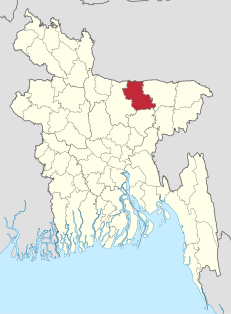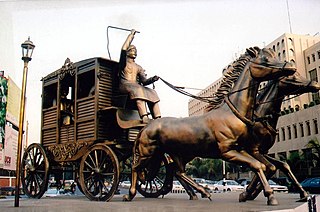
Humayun Ahmed was a Bangladeshi novelist, dramatist, screenwriter, filmmaker, songwriter, scholar, and lecturer. His breakthrough was his debut novel Nondito Noroke published in 1972. He wrote over 200 fiction and non-fiction books, many of which were bestsellers in Bangladesh. His books were the top sellers at the Ekushey Book Fair during the 1990s and 2000s. He won the Bangla Academy Literary Award in 1981 and the Ekushey Padak in 1994 for his contribution to Bengali literature.

Muhammed Zafar Iqbal is a Bangladeshi science fiction author, physicist, academic and activist. He is a professor of computer science and engineering at Shahjalal University of Science and Technology (SUST). As of January 2018, he is the head of Electrical and Electronic Engineering department. He achieved his PhD from University of Washington. After working long 18 years as a Scientist in California Institute of Technology and Bel Communications Research, he returned to his own motherland Bangladesh and joined Shahjalal University of Science and Technology as a professor of Computer Science and Engineering.
Shahabuddin Ahmed served as the President of Bangladesh from 1996 to 2001, and the Chief Justice of Bangladesh from 1990 to 1995. He previously served as the acting president during 1990-91 when Hussain Muhammad Ershad resigned from the post. He headed a caretaker government and held a general election in February 1991.

Mymensingh is the capital of Mymensingh Division, Bangladesh. Located on the bank of Brahmaputra River, about 120 km (75 mi) north from Dhaka, it is a major financial centre and educational hub of north central Bangladesh. The city, constituted by the British East India Company on 1 May 1787, is currently the country's fourth-largest city.

Netrokona is a district of the Mymensingh Division in northern Bangladesh.
Misir Ali is a fictional character in a series of novels by Bangladeshi author Humayun Ahmed. He was described as one of the most famous characters in Bengali literature, TV and film over the last three decades."

Bengali novels occupy a major part of Bengali literature. Though the first Bengali novel was Karuna O Phulmonir Bibaran (1852), the Bengali novel actually started its journey with Durgeshnandini written by Bankim Chandra Chattopadhyay in 1865. According to Ananda Sanker and Lila Ray, 'when the novel was introduced in Bengali in the middle of the 19th century, the form itself was new, the prose in which it was written was new, the secular tone was new in a country hitherto wholly dominated by religion, and the society in which and for which it was written was new' (p. 168). But some great novelists like Bankim Chandra Chatterjee, Rabindranath Tagore, Manik Bandopadhyay, Tarashankar Bandopadhyay, and Sarat Chandra Chattopadhyay developed the newly introduced genre in such a way that 'new' changed into 'matured' through their works. Almost all these literary activities went on in full swing in Kolkata. Dhaka, on the other hand, could not participate in the early stage, but literature created by and of the people of Bangladesh area later on flourished with notable success.

Ahmed Sofa was a Bangladeshi writer, thinker, novelist, poet, and public intellectual. Sofa is considered by many, including National Professor Abdur Razzaq and Salimullah Khan, to be the most important Bengali Muslim writer after Mir Mosharraf Hossain and Kazi Nazrul Islam. A writer by occupation, Sofa wrote 18 non-fiction books, 8 novels, 4 collections of poems, 1 collection of short stories, and several books in other genres.

Shahriyar Kabir " is a Bangladeshi journalist, filmmaker, human rights activist, and author of more than 70 books focusing on human rights, communism, fundamentalism, history, and the Bangladesh war of independence. He was awarded Bangla Academy Literary Award in 1995.
Ahmed Reza Rubel is a Bangladeshi theatre, movie and television actor. He started his career in Selim Al Deen's theatre group "Dhaka Theatre". Later he concentrated into mainstream commercial movies and starred in 6 movies. Then he left the film industry to work in tele-dramas.

Ferdous Ahmed is a Bangladeshi film actor and producer. He acts in Bangladesh and Indian Bengali films. He won Bangladesh National Film Award for Best Actor 5 times for his roles in the films Hothat Brishti (1998), Gangajatra (2009), Kusum Kusum Prem (2011), Ek Cup Cha (2014) and Putro (2018).
Impress Telefilm Limited is a media production house in Bangladesh formed in 1996. The company produces film, drama, and drama serials, music videos, variety shows, magazine programmes, musical programmes and documentaries as well as TV commercials. It was founded by Faridur Reza Sagar.

Dui Duari also is a Bangladeshi Bengali-language film. The film was released in 2000. Directed by Bangladeshi famous poet, film director-writer Humayun Ahmed, produced and distributed by his film producer-distributor company called as Nuhash Chalachitra. Stars include Riaz, Mahfuz Ahmed, Meher Afroz Shaon, Masud Ali Khan, Amirul Haque Chowdhury, Dr.Ezazul Islam, Shamima Nazneen, Shabnam Parvin, Nasima Khan and many more.

Bari Siddiqui was a Bangladeshi singer-songwriter and flautist. His songs include Shua Chan Pakhi, Amar Gaye Joto Dukkho Shoy, Pubali Batashe and Manush Dhoro Manush Bhojo.

Mahfuz Ahmed is a Bangladeshi television actor. He is also a film actor, presenter, model and producer. He was awarded Bangladesh National Film Award for Best Actor for his role in the film Laal Sobuj.
Shila Ahmed is a Bangladeshi television and film actress. She won Bangladesh National Film Award for Best Child Artist Award for her performance in Aguner Poroshmoni (1994).
Faizur Rahman Ahmed was a police officer and a freedom fighter of the 1971 Bangladesh Liberation War. He was killed by Pakistani military personnel. He received the Independence Day Award from the Government of Bangladesh in 2017.

Wasi Ahmed is an acclaimed Bangladeshi novelist and short story writer. His works in original and in translation have been anthologized in Bangladesh, India, Sri Lanka and UK. He has co-authored and edited an anthology of South Asian short stories. Formerly a civil servant and diplomat, he is currently associated with the English daily The Financial Express as consulting editor, and contributes to a number of Bangla and English dailies. Among others, he contributes a weekly post-editorial column for The Financial Express.

Shāh Sultān Qamar ad-Dīn Rumī, was an 11th-century Sufi Muslim figure who in scholarly tradition, is believed to have been the first Sufi who visited and settled in Bengal. His name is associated with the spread of Islam into Netrokona, part of a long history of travel between the Middle East, Central Asia and South Asia.

The Old Dhakaites are an Indo-Aryan ethnocultural group viewed as the original inhabitants of Dhaka. They are sometimes referred to as simply Dhakaiya. Their history dates back to the Mughal period with the migration of cultivators and merchants to the city. The cultivators came to be known as Kutti and they speak Dhakaiya Kutti and the merchants came to be known as Khoshbas and speak Dhakaiya Urdu. There are sizeable populations in other parts of Bangladesh. They have been described as a wealthy but very closed-off community; evidently being a minority in their own hometown. It is said that some people living in Greater Dhaka are even unaware of the existence of an Urdu-speaking non-Bihari minority community although their presence dates back centuries.















